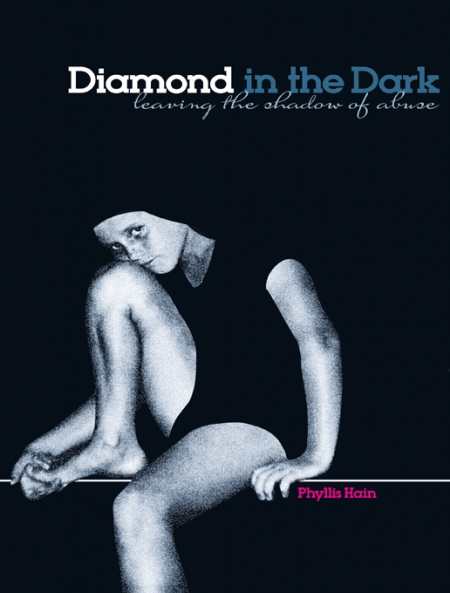Diamond in the Dark
Leaving the Shadow of Abuse
A moving, detailed story of overcoming abuse and unhealthy marriages, this memoir captivates through admirable description of everyday life.
A survivor of both childhood and domestic abuse tells her story in a straightforward manner in this memoir. While the book is disturbing, it is an enlightening and inspiring portrait of the resilience of the human spirit. Her story is captivating, but at times it flounders, getting unduly bogged down in details.
Phyllis Hain was sixteen when she learned she was pregnant by her first boyfriend, JJ. This was in the mid-1960s in the South, and she didn’t feel as if she had any options other than to quit school and get married. Despite the warning signs of a volatile personality, Hain and JJ were married and moved into a tiny trailer. It wasn’t long before JJ’s verbal abuse led to physical abuse, as well as infidelity. Soon thereafter, Hain realized with despair that she had married someone just like her father and ended up just like her mother.
Hain was the youngest of three children born into a blue-collar family in 1950’s Alabama; she was raised primarily in Pensacola, Florida. Her family’s life was forever changed when her father returned from WWII with shrapnel in his head; the family attributed his violent and unpredictable behavior, coupled with his drinking problem, to his war experience.
As a child, Hain had also been molested and touched inappropriately by older adults, scenarios she can barely recall. Like many abuse victims, she didn’t tell anyone at first, and when she finally did tell, no one believed her.
Hain tells, in painstaking detail, of the final disintegration of her first marriage, as well as several other marriages to the wrong men. One of them, Paul Leverett, treated her like gold, but he was ultimately accused of contracting for the murder of his first wife.
At times the story is compelling, particularly as Hain talks of the bright face she put on for the world, masking an inner, almost unbearable pain. The conversational writing style makes for a smooth reading experience, despite the raw subject matter. However, the book is abundantly overwritten. The flow of the narrative is occasionally interrupted by seemingly random thoughts or even authorial intervention. That is not to say that Hain doesn’t have quite a story to tell; it’s just so overwrought with detail that savoring the book soon turns to anxiously awaiting its end.
Nonetheless, Hain’s story is an admirable one. She went from one abusive relationship to the next, but at the same time, she made sure she was educated and financially responsible, taking on various jobs in the insurance and real estate industries. For more than two decades, Hain worked for the US Navy as a Sexual Assault Response Coordinator.
The author comes across as a sympathetic, smart, likable person, and her progression from a broken woman to a strong woman is heartening.
Reviewed by
Hilary Daninhirsch
Disclosure: This article is not an endorsement, but a review. The publisher of this book provided free copies of the book and paid a small fee to have their book reviewed by a professional reviewer. Foreword Reviews and Clarion Reviews make no guarantee that the publisher will receive a positive review. Foreword Magazine, Inc. is disclosing this in accordance with the Federal Trade Commission’s 16 CFR, Part 255.

